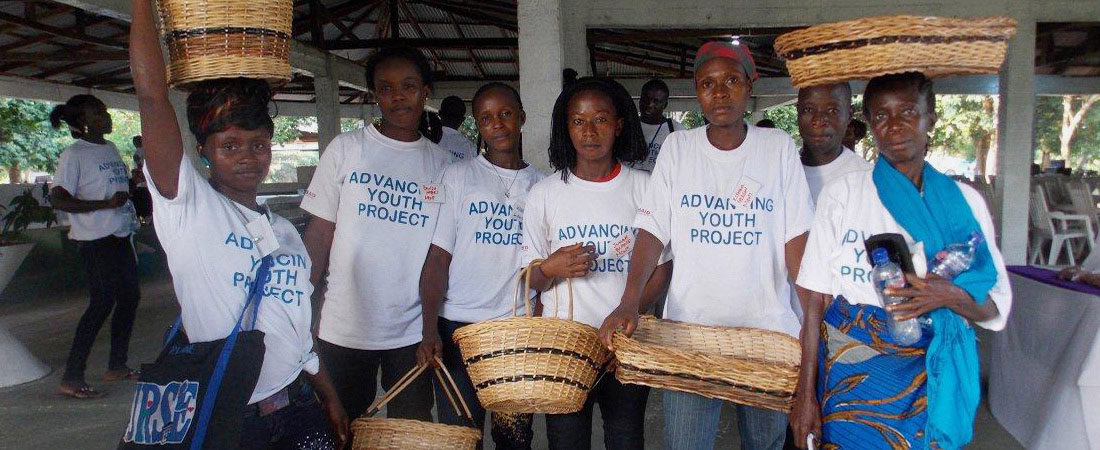Keys to the Future

More than 100 Liberian youth gathered at a four-day summit in Monrovia hosted by USAID’s Advancing Youth Project. They came to share their successes as youth club leaders who are striving to improve their lives and their communities through participation in literacy, numeracy, and livelihood skills training programs.
Liberia’s Minister of Youth and Sports, S. Tornolah Varpilah, thanked them for their service, saying, “Success is due to hard work, not luck.” It’s something these young people have learned from experience.
Located on the west coast of sub-Saharan Africa, Liberia is striving to rebuild after 14 years of civil war, which began in the late 1980s and endured into the early 2000s. “The conflict created complete chaos,” says EDC’s Simon James, who has lived and worked in Liberia for several years. “Many people were forced to drop out of school, and some have never been to school at all. Now they want an education to improve their livelihoods.”
The USAID/Liberia Advancing Youth Project is being implemented by EDC in collaboration with YMCA of Liberia and Mercy Corps. The program trains teachers and targets youth and young adult learners ages 13 to 35, offering day and evening classes in the Alternative Basic Education curriculum that includes literacy, numeracy, life skills, and work readiness. The program also offers learners the opportunity to gain expertise to improve their livelihoods areas, such as small-scale agriculture and micro-enterprise training. The Advancing Youth Project works closely with the Liberian Ministry of Education and other government ministries, including Agriculture, Health, and Youth and Sports, as well as with nongovernmental organizations and private companies.
More than 9,000 learners from 5 of Liberia’s 15 counties are enrolled in Advancing Youth Project courses and programs. In addition to the reading and math classes offered, the program provides work readiness and life skills training, facilitates access to HIV/AIDS testing and family planning services, and encourages community service.
“Providing quality education is the key to Liberia’s future,” says James. “The Alternative Basic Education curriculum gives the youth of Liberia opportunities to improve their livelihoods and their health, and ensure stability of their communities.”
Youth who attended the recent summit are successful Youth Club leaders from the Alternative Basic Education sites, who engage in a range of activities that benefit their communities. These include planting gardens and growing food for both consumption and sale, promoting sports activities, and engaging in other service projects, such as picking up garbage. Youth club leaders also form local reading and study clubs, and encourage other young people to enroll in the program and get an education.
One young man attending the summit asked Varpilah how to react to friends who teased him about taking classes. Varpilah encouraged the youth not to let jeers deter him from taking responsibility for his life. He said, “In the future, the same people who are giving you problems now will come to you for support.”
The Advancing Youth Project aims to reach more than 16,000 Liberian youth by 2016. The Alternative Basic Education curriculum being developed and piloted with the Ministry of Education will support adult learners who need to improve their educational levels and gain skills to find work and participate in the economy.
